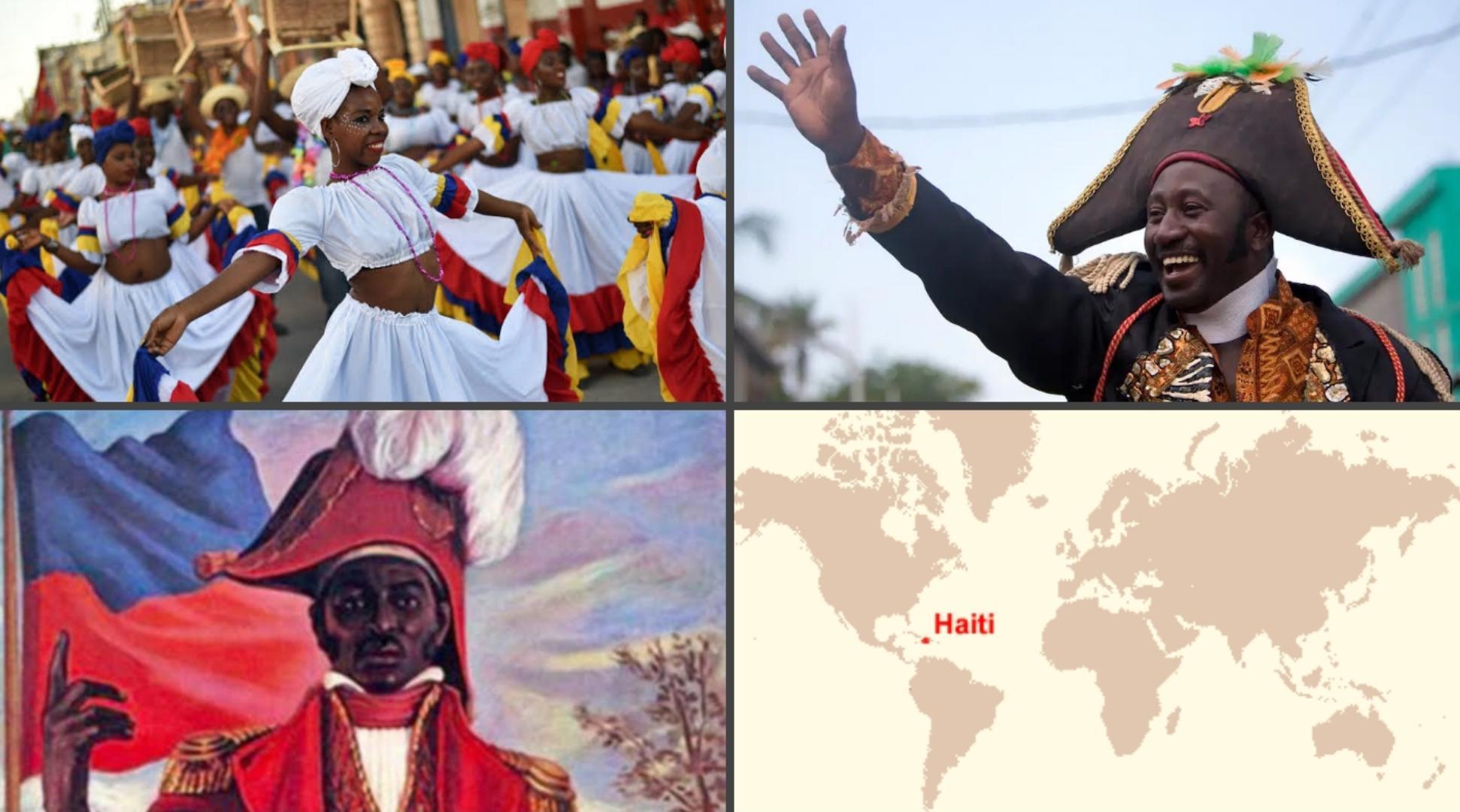As some African countries like South Sudan gained their independence just in 2011, people from African liberated a ‘first black nation’ (Haiti) in North America more than 216 years ago, the only state in history established by a successful slave revolt.
Haiti became the world’s first black-led republic and the first independent Caribbean state when it threw off French colonial control and slavery in the early 19th century.
Haiti officially the Republic of Haiti is a country located on the island of Hispaniola in the Greater Antilles archipelago of the Caribbean Sea, to the east of Cuba and Jamaica and south of The Bahamas and the Turks and Caicos Islands. It occupies the western three-eighths of the island which it shares with the Dominican Republic.To its south-west lies the small island of Navassa Island, which is claimed by two nations (Haiti and United States). Haiti is 27,750 square kilometers (10,714 sq mi) in size, the third largest country in the Caribbean by area, and has an estimated population of 11.4 million, making it the most populous country in the Caribbean.
The island was originally inhabited by the indigenous Taíno people, who originated in South America. The first Europeans arrived on 5 December 1492 during the first voyage of Christopher Columbus.
By 1697 French colonists established lucrative sugarcane plantations, worked by vast numbers of slaves brought from Africa, which made the colony one of the richest in the world.
In the midst of the French Revolution (1789–99), slaves and free people of color launched the Haitian Revolution (1791–1804), led by a former slave and the first black general of the French Army, Toussaint Louverture. After 12 years of conflict, Napoleon Bonaparte’s forces were defeated by Louverture’s successor, Jean-Jacques Dessalines (later Emperor Jacques I), who declared Haiti’s sovereignty on 1 January 1804—the first independent nation of Latin America and the Caribbean, the second republic in the Americas, the first country to abolish slavery, and the only state in history established by a successful slave revolt.
Apart from Alexandre Pétion, the first President of the Republic, all of Haiti’s first leaders were former slaves.
After a brief period in which the country was split in two, President Jean-Pierre Boyer united the country and then attempted to bring the whole of Hispaniola under Haitian control, precipitating a long series of wars that ended in the 1870s when Haiti formally recognized the independence of the Dominican Republic.
Haiti’s first century of independence was characterized by political instability, ostracism by the international community and the payment of a crippling debt to France.
Political volatility and foreign economic influence in the country prompted the U.S. to intervene from 1915 to 1934. Following a series of short-lived presidencies, François ‘Papa Doc’ Duvalier took power in 1956, ushering in a long period of autocratic rule that was continued by his son Jean-Claude ‘Baby Doc’ Duvalier that lasted until 1986.
Haiti is a founding member of the United Nations, Organization of American States (OAS), Association of Caribbean States, and the International Francophonie Organisation. In addition to CARICOM, it is a member of the International Monetary Fund, World Trade Organization, and the Community of Latin American and Caribbean States.
The name Haiti (or Hayti) comes from the indigenous Taíno language which was the native name given to the entire island of Hispaniola to mean, “land of high mountains.”
1801 – A former black slave who became a guerrilla leader, Toussaint Louverture, conquers Haiti, abolishing slavery and proclaiming himself governor-general of an autonomous government over all Hispaniola.
1804 – Haiti becomes independent; former slave Jean-Jacques Dessalines declares himself emperor.
 The African History Truly African
The African History Truly African

